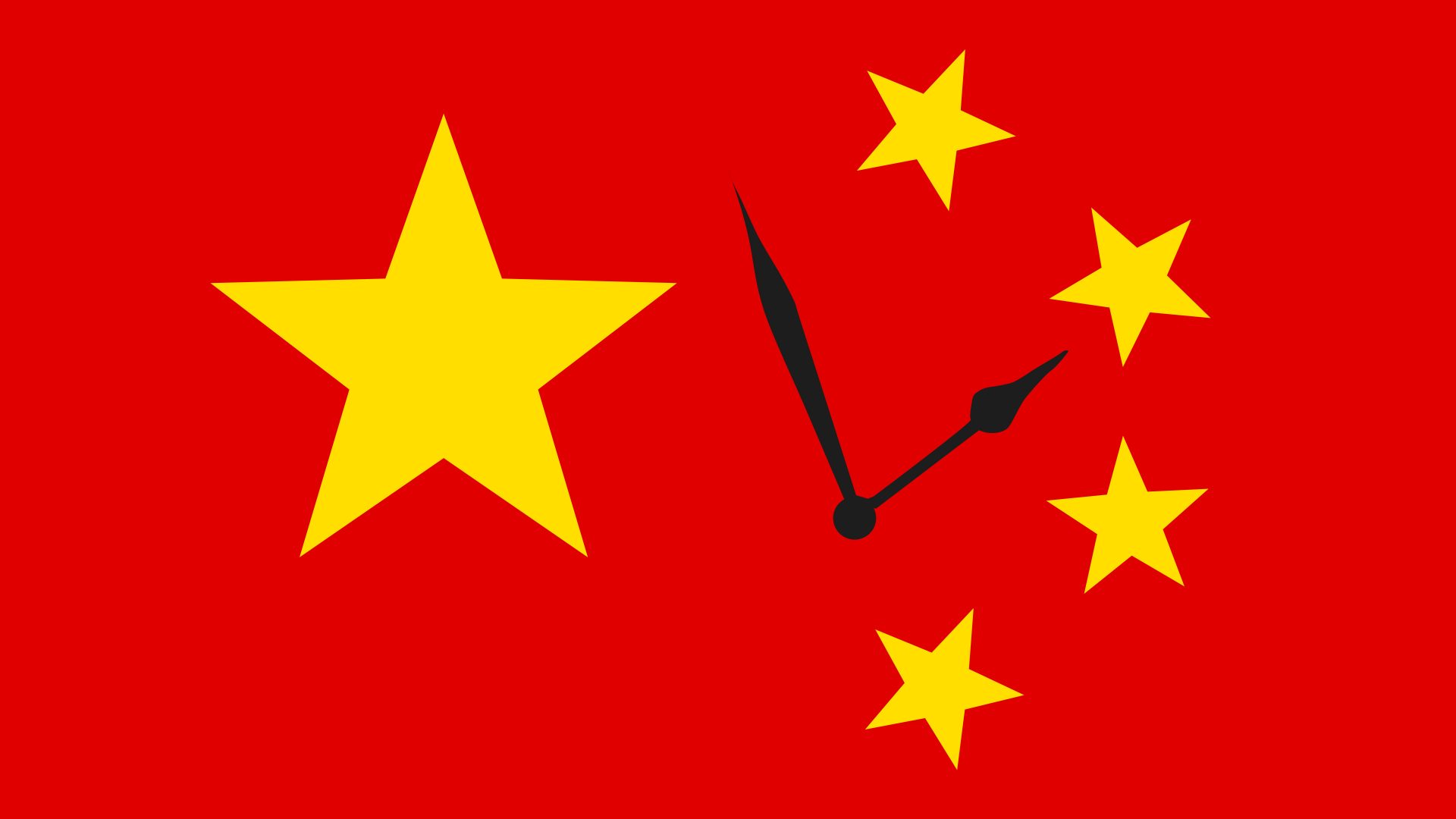The fact that the USA is now the only country in the world to measure temperature in Fahrenheit rather than Celsius can be interpreted as
indicating the relative lack of interest many Americans have in the world beyond their own borders.
Similarly, the extraordinary fact that China has only one time zone can be
interpreted as indicating the lack of regard the Chinese state has for many
of its own citizens.
China is approximately the same size as the USA. Both countries are very roughly three thousand miles across. But whereas the USA has four time zones – Pacific, Mountain, Central, and Eastern (plus two more for Alaska and Hawai’i) – China has only one – Peking or Beijing Time.
Three thousand miles is as far as London is from Quebec City, far away on the other side of the Atlantic, and in terms of time zones five hours behind the United Kingdom.
This centrist Chinese policy is very symbolic of the remarkably autocratic
and anti-democratic nature of the Chinese system, which in the case of time zones is very hostile to the needs of many Chinese citizens as human beings.
In China’s westernmost regions, sunsets can be witnessed at midnight; and people have to get up to go to work many hours before sunrise. When it is 7am in the Chinese capital, it is also 7am three thousand miles to the west.
Unsurprisingly, the persecuted Turkic-speaking Uighur people of Xinjiang, in the far west of China, very often ignore Beijing Time and instead use their own unofficial local time zone, Xinjiang or Ürümqi Time, which is 2 hours behind Peking Time. (Ürümqi is the capital of the Uyghur Autonomous Region, although “autonomous” is a rather misleading term these days.) If you arrange to meet someone in Ürümqi at 11 o’clock, you will need to know if they are an indigenous Uighur or a colonial Han Chinese, because otherwise you might be two hours early (or late).
The purpose of this time-zone policy, as inherited from Chairman Mao with his Communist Party goal of total control, is apparently “to unify the nation”.
This is the same objective which is, sadly, wreaking havoc on the many different languages of China. The languages of the colonised peoples of China, such as Tibetan, Mongolian and Uighur, are predictably under very
considerable pressure, official and unofficial, from Mandarin Chinese.
But perhaps more surprisingly, the many different non-Mandarin Chinese languages of the Han Chinese people themselves, such as Cantonese, Hokkien, Hakka, Shanghainese – often wrongly referred to as “dialects” in
China – are also under attack in the interests of “national unity”.
China’s autocratic president, Xi Jinping, has tried to reinforce a single, uniform Chinese identity through discouraging the usage of all languages except Mandarin, and indeed Mandarin now seems to be being spoken by over 80% of the population, as compared to perhaps 70% 20 years ago.
Many younger people are no longer able to speak their local Chinese language, and it does not help that local TV stations are often banned from broadcasting in these languages. Even the Szechuanese language of the former paramount leader of China, Deng Xiaoping, seems to have disappeared from the airwaves, and civil servants have been banned from using it in their places of work.
ZONE
The word zone was first used in English in the 16th century, with reference to
climatic zones. It came originally from the Ancient Greek word for ‘belt’ or
‘girdle’. Even today, if you are in Athens or Salonika and need a belt for your trousers, you should ask for a zóni.




